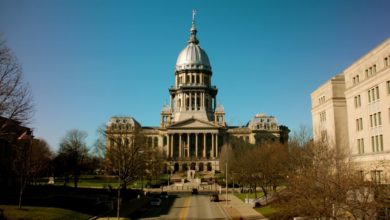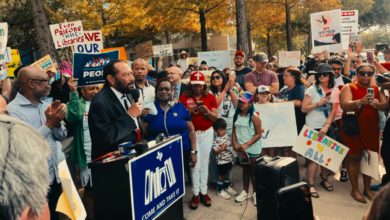A militant student movement emerged in Quebec against Jean Charet’s Liberal Party government with the announcement in 2011 of a plan to increase tuition by 75 percent over a five-year period. By April of this year, government repression unleashed the fury of the state with dozens of arrests and police attacks against student protests—some as large as 400,000 people.
The mobilization of the students became a central issue in the 2012 campaigns leading up to the Sept. 4 elections for prime minister of Quebec.
The Liberal Party government was defeated in favor of the separatist Parti Québécois. It was also the first time that a woman, Pauline Marois, was elected as prime minister of the province. Two of Marois’ first acts, in keeping with promises made to the student movement, was canceling the austere tuition hike and repealing the repressive Bill 78, implemented by the Liberal Party government and aimed at silencing the student movement. Bill 78 restricted the right of 50 or more people to protest on or near a university.
The students showed how the power of the mass movement can push forward a people’s agenda—in this case within the electoral arena. But the students understand that the victory cannot be simply attributed to the results of the election.
“We must reclaim this victory as a victory of our social movement rather than an outcome of the electoral process,” asserted Jérémie Bédard-Wien, a leader of the Coalition large de l’Association pour une solidarité syndicale étudiante.
“Our struggle for accessibility to higher education is not yet over,” added Bédard-Wien after the election results. The main goal of the government’s tuition hike was to make universities “competitive institutions.” It really was an attack on the right to an education by attempting to privatize education and produce more profits for the rich at the expense of students.
In late September, students returned to the streets with the demand: Free education for all.
CLASSE has the militancy and support to push forward with this demand. Of the 450,000 post-secondary students in Quebec, there are about 100,000 affiliated with CLASSE. About 175,000 participated in the student strikes over the last year.
PQ buckled under pressure of mass movement
CLASSE also understands that the PQ buckled under the pressure of the mass movement. The PQ is a nationalist party in Quebec Province that advocates for the self-determination of the Québécois people including separation from Canada. As the primary organized expression of Québécois nationalism, the party has been led by Marois since 2007 and has significant support among the labor movement.
The PQ also includes elements that are not progressive, such as those who promote banning the display of non-Christian religious symbols for public officials. Quebec is the only French-speaking province in Canada. However, it is a multi-national province with immigrants from all over the world as well as a Native American population.
The PQ has, in fact, proposed tuition hikes in the past. The new government is proposing a future increase calculated on the rate of inflation.
The Québécois student movement never held illusions that the bourgeois electoral process would resolve their consistent demand for free education for all.
CLASSE promoted the demand of the tuition freeze and engaged in militant actions and a student strike to build the movement with an attainable victory on the road to their vision of education as a right. This strategy, CLASSE believes, has assisted the student movement to engage larger numbers of students and build relationships based on solidarity with other movements—an ingredient they contend is necessary for the ultimate victory for all of their demands.





